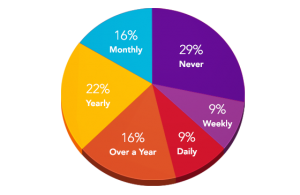Building an Effective Data Backup Plan
Think of all the different types of data that you store on your computer – pictures, saved email attachments, word documents, spreadsheets, music, movies, letters, pdf documents and more. Not to mention important sensitive scanned data such as tax documents, birth certificates, etc. What would happen if your computer died, or was missing due to fire, flood, theft, or natural disaster? Do you have a backup of your data that you could put on to a new computer? If your data was kept on an external drive, and that drive died what would you do?
This article is the first of a multipart series on data backup. The goal of these articles is to provide the home computer user with an easy to follow, comprehensive plan to backing up your computer. Business users will typically have different requirements concerning data backup and retention and should contact us for a more detailed overview of their environment and backup needs.
Everyone knows that they should back up their computers to protect their data but how many people actually do? Harris Interactive conducts an annual Backup Awareness Survey in which 2,000 or so random computer users are asked how often they backup all the data on their computers. The 2014 results can be seen in the pie chart below:
As you can see almost 1/3 of computer users, the largest segment of the pie, do no type of data backup whatsoever, while less than 10% back up their systems daily! Where do you fall in the chart (please leave a comment on our Facebook page)?
Although we can sometimes recover data from a crashed drive, that is not always the case. We have had many people reduced to tears in our shop when we inform them that their hard drive has crashed and we cannot retrieve any data. In every instance they have not had a backup of their data. In those cases we refer them to a company that specializes in data recovery, but make no mistake about it their prices are steep – many times surpassing $1500.
Backing up your computers data is a fairly straightforward process even for the novice computer user. In fact the entire process can be automated! So what is the best method to backing up your computer? Actually it is a combination of solutions that work the best.
“There are two groups of people: those who have already had a storage failure and those who will have one in the future.” – Peter Krogh, noted photographer.
Hard drives, like humans, have a 100% mortality rate. It is not a matter of if they will die, but when. Keeping this in mind there is an unwritten rule concerning data backup called the 3-2-1 rule. This means that you should:
- Have at least three copies of your data.
- Store the copies on two different forms of media.
- Keep one backup copy offsite.
Our next article will explore the 3-2-1 rule a little further.



